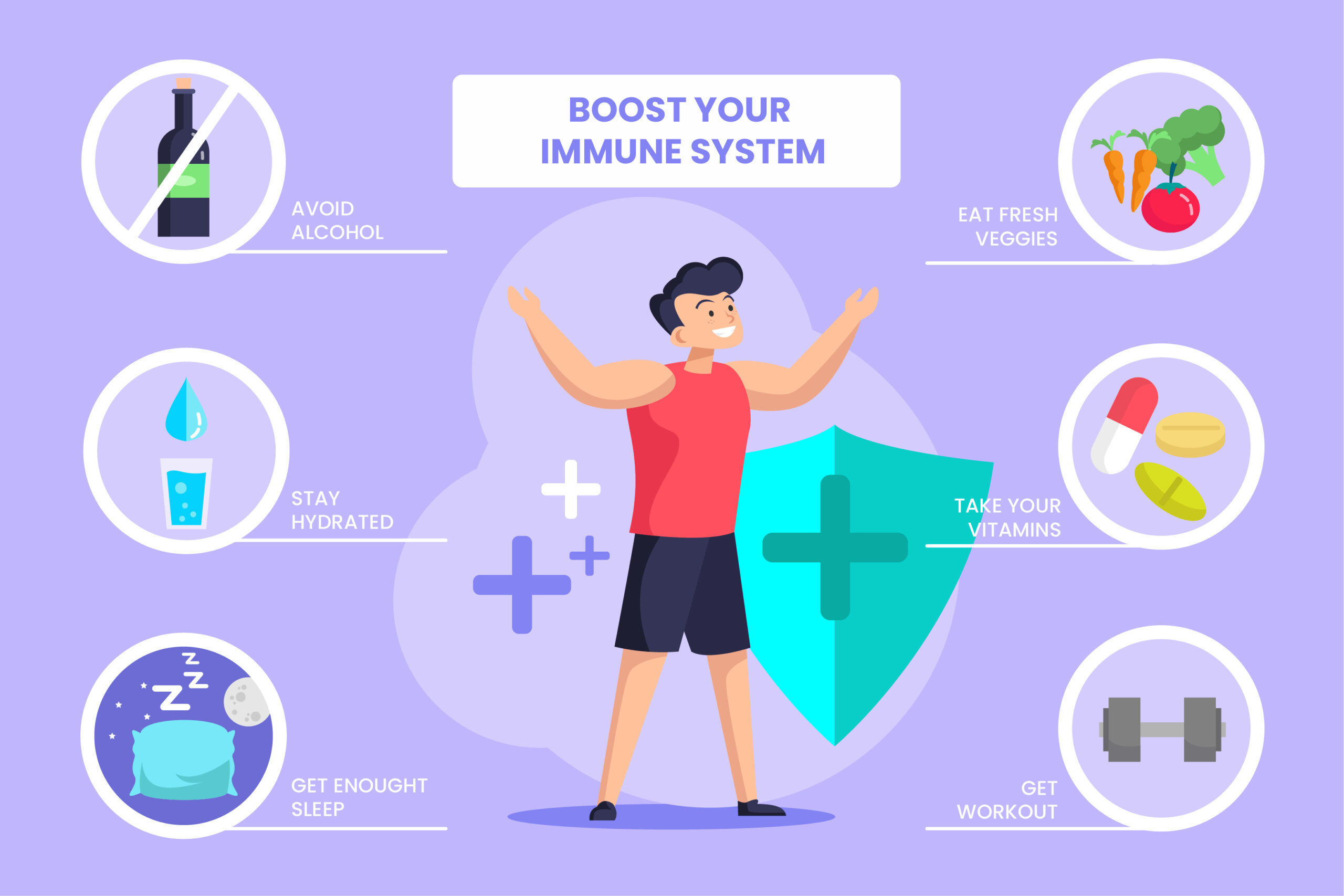In a world filled with various health concerns, one thing remains constant: the importance of a robust immune system. Your body’s immune defense is its frontline warrior against harmful pathogens, viruses, and bacteria. Strengthening your immune system not only helps fend off illnesses but also contributes to overall vitality and well-being. In this comprehensive guide, we’ll explore practical, science-backed strategies to boost your immune system naturally.
Understanding the Immune System
Before diving into immune-boosting techniques, it’s essential to understand how the immune system works. The immune system is a complex network of cells, tissues, and organs that work together to defend the body against harmful invaders. Components such as white blood cells, antibodies, and lymphatic vessels play vital roles in identifying and neutralizing pathogens.
Nutrient-Rich Diet for Immune Health
A well-balanced diet forms the foundation of a strong immune system. Incorporate a variety of nutrient-rich foods into your meals to ensure you’re getting essential vitamins, minerals, and antioxidants. Focus on:
- Vitamin C: Found in citrus fruits, kiwi, bell peppers, and broccoli, vitamin C supports immune cell function and enhances the body’s ability to fight infections.
- Vitamin D: Exposure to sunlight and consumption of foods like fatty fish, eggs, and fortified dairy products provide vitamin D, which plays a crucial role in regulating immune responses.
- Zinc: Nuts, seeds, legumes, and whole grains are excellent sources of zinc, an essential mineral that supports immune cell development and function.
Hydration and Immune Function
Adequate hydration is key to maintaining optimal immune function. Water helps transport nutrients to cells, flushes out toxins, and supports the production of immune cells. Aim to drink at least 8 glasses of water per day, and incorporate hydrating foods like watermelon, cucumber, and herbal teas into your diet.
The Role of Exercise in Immune Support
Regular physical activity offers numerous benefits for immune health. Exercise improves circulation, reduces inflammation, and enhances the function of immune cells. Aim for a combination of cardiovascular exercise, strength training, and flexibility exercises to support overall immune function.
Prioritizing Quality Sleep
Sleep is a critical component of immune health and overall well-being. During sleep, the body repairs and regenerates cells, and the immune system strengthens its defenses. Aim for 7-9 hours of quality sleep each night, and establish a relaxing bedtime routine to promote restful sleep.
Stress Management Techniques
Chronic stress can suppress immune function, making you more susceptible to infections. Incorporate stress-reduction techniques such as meditation, deep breathing exercises, yoga, or spending time in nature into your daily routine. Prioritize self-care activities that promote relaxation and reduce stress levels.
Consideration of Immune-Boosting Supplements
While a balanced diet should provide most of the nutrients your immune system needs, certain supplements may offer additional support. Consult with a healthcare professional to determine if supplements such as vitamin C, vitamin D, zinc, or probiotics are appropriate for you.
Hygiene Practices and Immune Defense
Practicing good hygiene habits can help prevent the spread of infections and support immune health. Wash your hands frequently with soap and water, avoid touching your face with unwashed hands, and cover your mouth and nose when coughing or sneezing to reduce the risk of spreading pathogens.
Conclusion:
Strengthening your immune system is a multifaceted endeavor that involves nourishing your body with wholesome foods, staying hydrated, staying active, prioritizing sleep and stress management, and practicing good hygiene habits. By incorporating these strategies into your daily life, you can empower your body to defend against illness and optimize your overall health and well-being. Remember, small lifestyle changes can have a profound impact on your immune system’s resilience and your long-term health.
